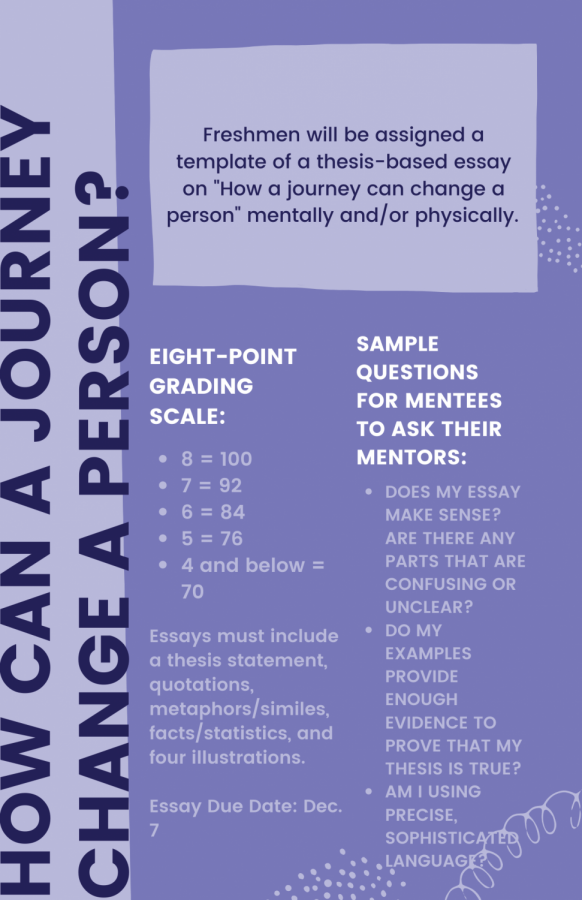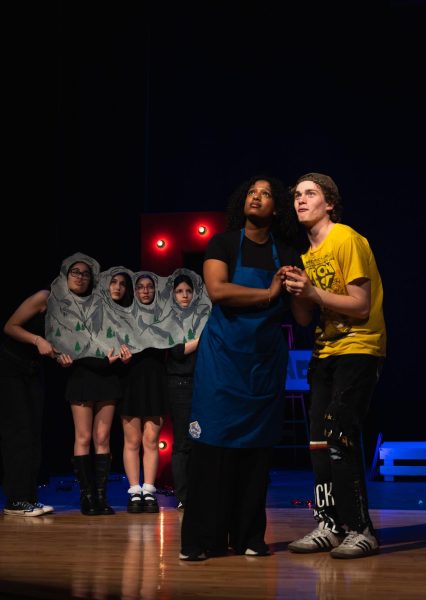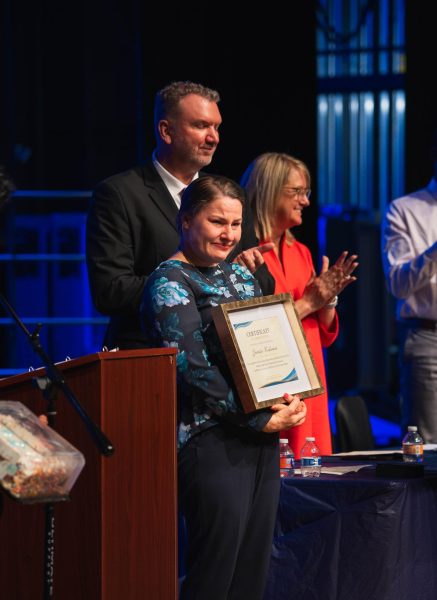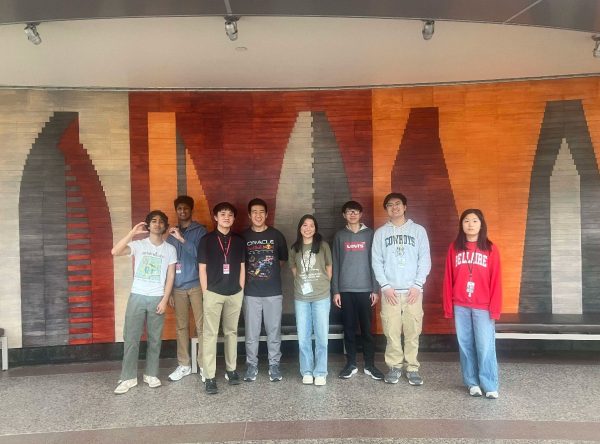Mentors, mentees dish on their experiences with all-student writing program
Inforgraphic by Malaika Suleman
Students received this “How can a journey change a person” essay writing assignment in November. The assignment included sample questions for the their mentors.
A student-led mentoring program for writing that pairs sophomores with freshmen on Microsoft Teams has helped to improve freshmen’s writing abilities, according to freshman and mentee Cambry Gerardi.
“I definitely prefer the advice from a mentor because they have more experience with different teachers and Bellaire,” Gerardi said. “I also feel more comfortable talking to someone who is more around my age versus an adult or teacher.”
The program was started in November by English teachers Gretchen Bonnes, Elizabeth Chapman and Gabriela Diaz. The program was mandatory for their students.
Each freshman or mentee is partnered with a sophomore mentor. Mentees share a writing assignment: a thesis statement, paragraph, STAAR-style essay, short story or poem, and ask their mentor for honest feedback.
The purpose of the program is to find out if students work better with older students, as they deal with similar circumstances with juggling school and the pandemic.
In return for helping students, mentors receive a gift card for a free dessert at Chick-fil-A and volunteer service hours credit for both National Honor Society and college applications. The requirement to fulfill the job as a mentor is to meet with their mentee(s) twice per grading cycle. Meetings last 15-20 minutes in order for mentors to earn full credit.
There are two TEAMS meetings connected to the writing program: Bellaire Student Writing Mentors and Writing Mentors and Mentees. The first TEAMS group is solely for mentors to log who they have met with, the date when they met and how long the meeting lasted. The second group is where mentors/mentees host their meetings. There are 18 breakout rooms, so running out of rooms is not an issue.
“We meet using Microsoft Teams and Ms. Diaz has many rooms set up for her channel,” Gerardi said. “I just schedule a time with Iman. It’s really simple.”
The main focus for the freshmen is to interact with who they have been partnered with. Mentor and sophomore Eloren Arrazolo used the sandwich approach when making changes to her mentees’ papers. She asked them to share their papers so she could make edits and offer suggestions while complementing the parts she liked best about their work.
“Their essays were already pretty solid,” Arrazolo said. “I was like, ‘Wow, that’s great,’ and then put some suggestions. I didn’t want to change that much, but I was using the editing tool and adding comments, but they were super patient.”
First-time meetings with students can be strange. The time is usually spent on introductions, then mentees will share what writing assignment they need help with.
“It was kind of awkward because I had never spoken to her before, but I asked her to read my rough draft, and she gave me some advice on how to make it better,” freshman Nathan Goldberg said about his mentor.
Mentors don’t receive a review of freshman English. They are expected to try to provide the best advice they can offer based on what they learned when they were freshmen.
“I would tell my mentee run-ons are easy to make but reading them can be confusing,” sophomore and mentor Tyler Robinson said. “Try reading the sentence and see if you think it’s too long. Stuff like that.”
Even with promising results from assignments that Chapman and Diaz received from their students, the decision for an all-student writing program didn’t fare well with everyone.
Freshman Nathan Goldberg said he did not support the system of older Bellaire students assessing other students’ work. He was appreciative of the run on sentences and incorrect grammar that his mentor, Robinson, caught and corrected, but he said the process as a whole was faulty.
“I honestly would get rid of it because I know when I get there, I don’t want to help a freshman because it would be a pain,” Goldberg said. “My friend’s mentor initially did not contact him for a while, and that meant he couldn’t progress on his essay because we needed our mentors’ approval. It was just a lot of effort for something we could have just done with our classmates.”
However, Gerardi liked the writing program and the helpful advice she received.
“I think the program is great the way it is, but I’d really like to experience it when we can meet face-to-face with our mentors,” Gerardi said.
Mentees are encouraged to write a thoughtful thank you note and mentors are expected to fill out a survey on their overall experience. The feedback will help Chapman and Diaz to know if the program produced enough benefits for it to be continued next year.
Arrazolo said the program made her feel helpful. It made her day when one of her mentees shared a personal example from her life that was really hard for her and she asked whether she should use it in her essay.
“Just the fact that she felt open to sharing that with me, she’s just very friendly and willing,” Ararzolo said.
Your donation will support the student journalists of Bellaire High School. Your contribution will allow us to purchase equipment and cover our annual website hosting costs.







